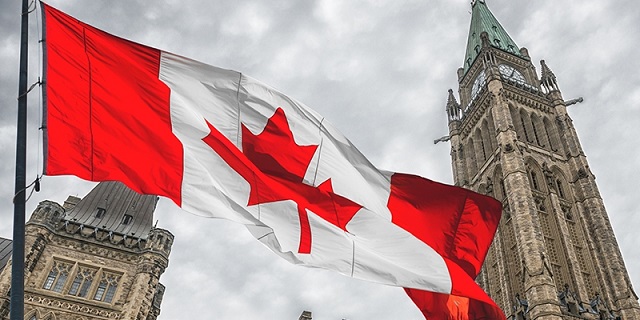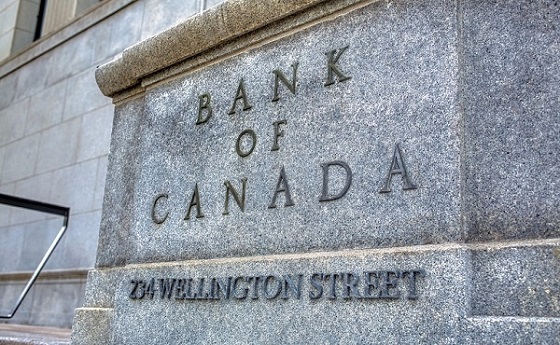Business
Canada’s record of underperforming international peers pre-dates COVID

From the Fraser Institute
By Francisca Dussaillant
Over the last business cycle (2007 to 2019), and long before the COVID-19 pandemic struck, Canada was already underperforming other advanced countries on important investment, employment and productivity measures that are
key to higher living standards, finds a new study published by the Fraser Institute, an independent, non-partisan Canadian public policy think-tank.
“It may be tempting for policymakers to blame Canada’s poor economic performance on the COVID pandemic and all the disruptions it caused, but the truth is Canada has been underperforming its international peers in important ways for many years,” said Jason Clemens, executive vice president of the Fraser Institute.
The study, A Comparative Analysis of the Economic Performance of Canada and Its OECD Competitors, 2007-2019, finds that Canada performed poorly on a number of important investment, employment and productivity indicators when compared to other high-income developed countries in the Organization for Economic Cooperation and Development (OECD). For example:
• Canada ranked 20th out of 31 for growth in GDP per person at 7.2 per cent. For context, the OECD average was 11.5 per cent, and countries as varied as Poland (54.1 per cent), Ireland (43.3 per cent), Czech Republic (21.0 per cent), the United States (12.7 per cent) and Australia (10.8 per cent) all outperformed Canada.
• Canada had the second lowest level of business investment (excluding residential construction) as a share of the economy among the OECD countries. Canada’s 11.0 per cent of GDP in 2019 was only slightly more than half the amount of Switzerland (20.3 per cent), which ranked first.
• Canada’s growth in private non-residential business investment as a share of the economy was the third worst among the OECD countries, and whereas investment (as a share of the economy) declined in Canada by 11.1 per cent, it increased by 19.7 per cent in the U.S.
• Employment in Canada’s government sector increased by 17.3 per cent, the fourth highest among the OECD countries. By comparison, employment in the private sector—necessary to finance the government sector—only grew by 13.3 per cent.
• Labour productivity, measured as GDP per hour worked, increased by 10.3 per cent, which is lower than the OECD average of 11.2 per cent.

“Canada’s relative underperformance, whether measured as growth in living standards, attracting investment, or the performance of the labour market, started more than a decade ago and is actually worsening,” Clemens said.
Banks
Top Canadian bank studies possible use of digital dollar for ‘basic’ online payments

From LifeSiteNews
A new report released by the Bank of Canada proposed a ‘promising architecture well-suited for basic payments’ through the use of a digital dollar, though most Canadians are wary of such an idea.
Canada’s central bank has been studying ways to introduce a central bank digital currency (CBDC) for use for online retailers, according to a new report, despite the fact that recent research suggests Canadians are wary of any type of digital dollar.
In a new 47-page report titled, “A Retail CBDC Design For Basic Payments Feasibility Study,” which was released on June 13, 2025, the Bank of Canada (BOC) identified a “promising architecture well-suited for basic payments” through the use of a digital dollar.
The report reads that CBDCs “can be fast and cheap for basic payments, with high privacy, although some areas such as integration with retail payments systems, performance of auditing and resilience of the core system state require further investigation.”
While the report authors stopped short of fully recommending a CBDC, they noted it is a decision that could happen “outside the scope of this analysis.”
“Our framing highlights other promising architectures for an online retail CBDC, whose analysis we leave as an area for further exploration,” reads the report.
When it comes to a digital Canadian dollar, the Bank of Canada last year found that Canadians are very wary of a government-backed digital currency, concluding that a “significant number” of citizens would resist the implementation of such a system.
Indeed, a 2023 study found that most Canadians, about 85 percent, do not want a digital dollar, as previously reported by LifeSiteNews.
The study found that a “significant number” of Canadians are suspicious of government overreach and would resist any measures by the government or central bank to create digital forms of official money.
The BOC has said that it would continue to look at other countries’ use and development of CBDCs and will work with other “central banks” to improve so-called cross border payments.
Last year, as reported by LifeSiteNews, the BOC has already said that plans to create a digital “dollar,” also known as a central bank digital currency (CBDC), have been shelved.
Digital currencies have been touted as the future by some government officials, but, as LifeSiteNews has reported before, many experts warn that such technology would restrict freedom and could be used as a “control tool” against citizens, similar to China’s pervasive social credit system.
The BOC last August admitted that the creation of a CBDC is not even necessary, as many people rely on cash to pay for things. The bank concluded that the introduction of a digital currency would only be feasible if consumers demanded its release.
Conservative Party leader Pierre Poilievre has promised, should he ever form the government, he would oppose the creation of a digital dollar.
Contrast this to Canada’s current Liberal Prime Minister Mark Carney. He has a history of supporting central bank digital currencies and in 2022 supported “choking off the money” donated to the Freedom Convoy protests against COVID mandates.
Alberta
Calgary taxpayers forced to pay for art project that telephones the Bow River

From the Canadian Taxpayers Federation
The Canadian Taxpayers Federation is calling on the City of Calgary to scrap the Calgary Arts Development Authority after it spent $65,000 on a telephone line to the Bow River.
“If someone wants to listen to a river, they can go sit next to one, but the City of Calgary should not force taxpayers to pay for this,” said Kris Sims, CTF Alberta Director. “If phoning a river floats your boat, you do you, but don’t force your neighbour to pay for your art choices.”
The City of Calgary spent $65,194 of taxpayers’ money for an art project dubbed “Reconnecting to the Bow” to set up a telephone line so people could call the Bow River and listen to the sound of water.
The project is running between September 2024 and December 2025, according to documents obtained by the CTF.
The art installation is a rerun of a previous version set up back in 2014.
Emails obtained by the CTF show the bureaucrats responsible for the newest version of the project wanted a new local 403 area code phone number instead of an 1-855 number to “give the authority back to the Bow,” because “the original number highlighted a proprietary and commercial relationship with the river.”
Further correspondence obtained by the CTF shows the city did not want its logo included in the displays, stating the “City of Calgary (does NOT want to have its logo on the artworks or advertisements).”
Taxpayers pay about $19 million per year for the Calgary Arts Development Authority. That’s equivalent to the total property tax bill for about 7,000 households.
Calgary bureaucrats also expressed concern the project “may not be received well, perceived as a waste of money or simply foolish.”
“That city hall employee was pointing out the obvious: This is a foolish waste of taxpayers’ money and this slush fund should be scrapped,” said Sims. “Artists should work with willing donors for their projects instead of mooching off city hall and forcing taxpayers to pay for it.”
-

 Daily Caller2 days ago
Daily Caller2 days agoUnanimous Supreme Court Ruling Inspires Hope For Future Energy Project Permitting
-

 espionage2 days ago
espionage2 days agoFBI Buried ‘Warning’ Intel on CCP Plot to Elect Biden Using TikTok, Fake IDs, CCP Sympathizers and PRC Students—Grassley Probes Withdrawal
-

 Agriculture2 days ago
Agriculture2 days agoUnstung Heroes: Canada’s Honey Bees are not Disappearing – They’re Thriving
-

 conflict18 hours ago
conflict18 hours agoVictor Davis Hanson Makes a Disturbing Prediction About What Happens If Iran Survives
-

 espionage2 days ago
espionage2 days agoFrom Sidewinder to P.E.I.: Are Canada’s Political Elites Benefiting from Beijing’s Real Estate Reach?
-

 Automotive18 hours ago
Automotive18 hours agoSupreme Court Delivers Blow To California EV Mandates
-

 Energy2 days ago
Energy2 days agoWho put the energy illiterate in charge?
-

 Alberta2 days ago
Alberta2 days agoAlberta’s carbon diet – how to lose megatonnes in just three short decades


